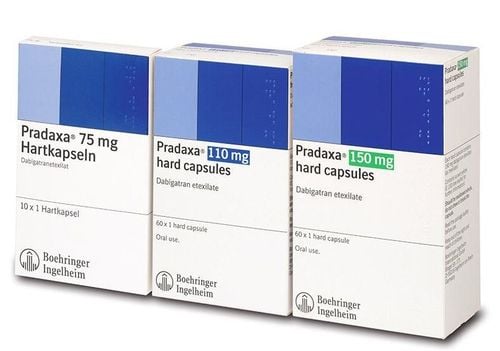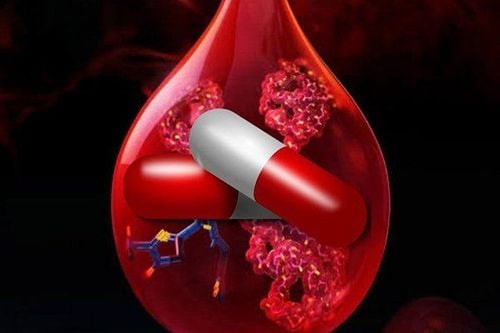This is an automatically translated article.
Anticoagulants are often prescribed for patients with thrombosis, especially coronary thrombosis. Anticoagulants include antiplatelet drugs and vitamin K antagonists. Accordingly, vitamin K can be dangerous for people taking anticoagulants. Therefore, it is necessary to balance between the amount of vitamin K ingested and the dose of the drug.
1. Vitamin K can be dangerous for people taking anticoagulants
Anticoagulants include antiplatelet agents, vitamin K antagonists and direct oral anticoagulants. Antiplatelet agents inhibit clot formation by inhibiting platelet activation, and blocking platelet aggregation through inhibition of enzymes and receptors. Vitamin K antagonists such as Sintrom, Warfarin inhibit the synthesis of vitamin K dependent coagulation factors.
Vitamin K is a liver enzyme that plays an important role in the synthesis of clotting factors such as factor II (prothrombin), factors VII, IX, X. Vitamin K belongs to the group of fat-soluble vitamins, very Necessary for blood clotting and regulation of blood clotting.
Anticoagulation is often indicated in patients with a known thrombosis (eg, deep vein thrombosis) or at risk of thrombosis, especially coronary thrombosis, to prevent complications. such as cerebral infarction, pulmonary embolism,... When taking anticoagulants, especially vitamin K antagonists such as Sintrom, Warfarin, attention should be paid to the interaction with other drugs and food, especially vitamins. K . Sudden increases in dietary vitamin K may decrease the effects of warfarin and sintrom. This leads to a decrease in the effectiveness of inhibiting blood clot formation, which can lead to dangerous complications.

Thuốc kháng vitamin K và thuốc chống đông đường uống trực tiếp
2. How to balance vitamin K with anticoagulant dosage
When taking anticoagulants, there should be a balance between the amount of vitamin K ingested and the dose of the drug. It is important not to eliminate vitamin K from the diet because vitamin K is found in many healthy, nutrient-rich foods. Patients need to maintain a certain amount of vitamin K and have their coagulation function checked periodically.
Ways to help control vitamin K intake are as follows:
2.1. Pay attention to food labels to keep your vitamin K intake steady
Patients can eat a certain amount of vitamin K every day, every week, or three times a week - as long as the diet and frequency are consistent.
Green vegetables like spinach, broccoli and lettuce are rich in vitamin K. In addition, foods like kiwi, asparagus and soybeans are also good sources of vitamin K. In processed foods, patients should carefully read the composition and content of each substance.
There are many vegetables that contain lower levels of vitamin K, including: tomatoes, peppers, carrots, cauliflower, cucumbers, potatoes, sweet potatoes, squash.
2.2. Beware of omega-3 supplements, herbs, and supplements (EPA/DHA)
Patients may need to avoid certain supplements, herbs, omega-3 and even multivitamins to keep blood values stable. Talk to your doctor about over-the-counter medications to make sure they don't interact with anticoagulants.2.3. Take your anticoagulant consistently
Another way to effectively manage the action of anticoagulants is to take the dose at the same time each day and make sure the amount of vitamin K is consistent. Periodic testing of coagulation function will help the patient to know whether the anticoagulant effect is reaching the therapeutic target with the current dose or not. From there, the doctor will adjust the dose and vitamin K intake accordingly.
Customers actively refer to the website of Vinmec International General Hospital to have more knowledge about nutrition and health shared from doctors and hospital experts.
Please dial HOTLINE for more information or register for an appointment HERE. Download MyVinmec app to make appointments faster and to manage your bookings easily.
References: healthline.com, health.clevelandclinic.org













